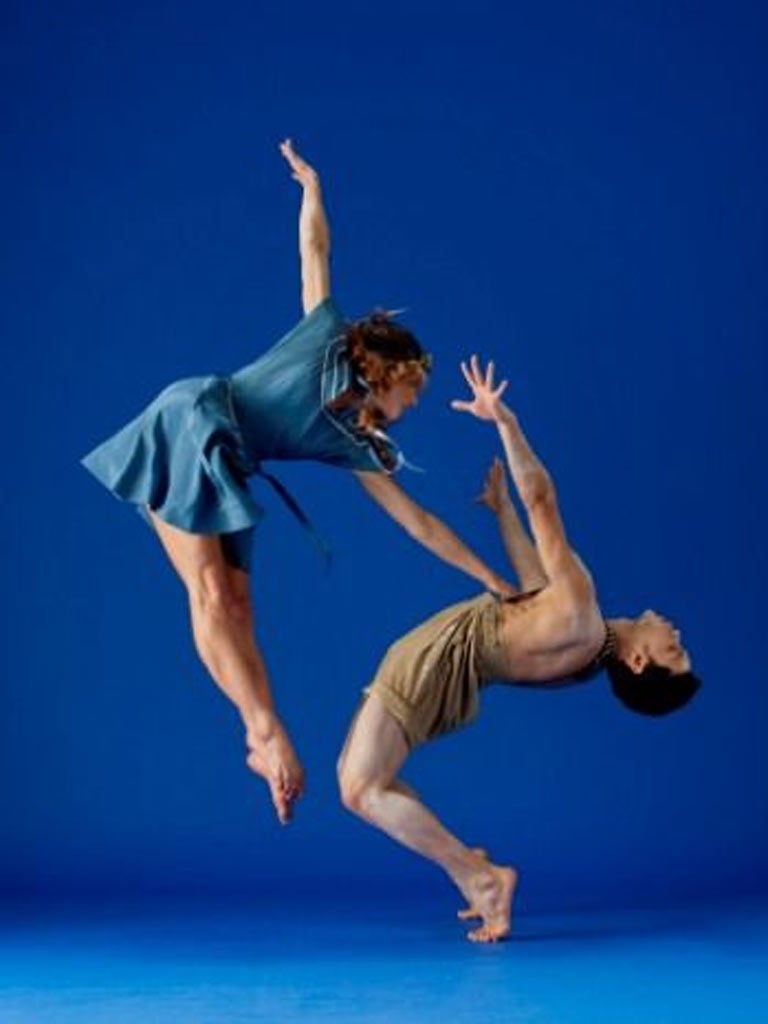
Your support helps us to tell the story
From reproductive rights to climate change to Big Tech, The Independent is on the ground when the story is developing. Whether it's investigating the financials of Elon Musk's pro-Trump PAC or producing our latest documentary, 'The A Word', which shines a light on the American women fighting for reproductive rights, we know how important it is to parse out the facts from the messaging.
At such a critical moment in US history, we need reporters on the ground. Your donation allows us to keep sending journalists to speak to both sides of the story.
The Independent is trusted by Americans across the entire political spectrum. And unlike many other quality news outlets, we choose not to lock Americans out of our reporting and analysis with paywalls. We believe quality journalism should be available to everyone, paid for by those who can afford it.
Your support makes all the difference.In its 85th anniversary year, Rambert Dance Company has plenty to celebrate. Work has just begun on a new home for the company, on London's South Bank. The dancers are in fine form, strong and individual. The bad news is that the two new works on this programme are decidedly iffy.
Mark Baldwin's Seven for a Secret, Never to be Told is inspired by children's play. Baldwin has worked with Nicola Clayton, professor of comparative cognition at the University of Cambridge, on how children think and behave. On stage, this becomes a weirdly old-fashioned view of childhood.
Designer Michael Howells seems to be aiming for The Wind in the Willows: a set with trailing willow branches, costumes with sailor collars, scout uniform detailing or schoolboy caps. Despite Clayton's involvement, the games Baldwin gives his dancers are similarly retro. They skip, they smile, they hold a dolls' tea party. There are some brighter details. Angela Towler brings a toy raven to the tea party, and insists on feeding it jam. Most of the time, this feels like an adult's cosy stereotype of children's games. Clearly, nobody here has ever had a serious sulk over who got which toy.
Baldwin's childhood games limit his choreography, pulling it down into chases and more skipping. Performances are bouncy and accomplished. Stephen McNeff's new score draws on Ravel's L'enfant et les Sortilèges, with jazzy lines from Rambert's own orchestra.
Javier de Frutos's Elysian Fields is a variation on A Streetcar Named Desire, marking the 100th anniversary of Tennessee Williams's birth. The dance is built around Blanche's speech about her husband, who killed himself when she found out about his homosexuality. Gemma Nixon speaks Blanche's lines, sitting perched on an oversized chair, designed by Katrina Lindsay.
Angela Towler is a sensitive Blanche figure, moving in isolation or trying to engage with the other dancers. De Frutos's choreography keeps turning into violence, with assistance from leading fight director Terry King. As a commentary on Streetcar, Elysian Fields has its moments, but struggles to find its own identity. It sags into incoherence and silliness, with too many staged fights.
The evening opened with Merce Cunningham's RainForest, gorgeously danced by this company. Dane Hurst shows huge force in his solo, with darting elegance from Estela Merlos and grand authority from Pieter Symonds. Rambert has superb dancers, whatever it gives them to dance.
Ends tomorrow (0844 412 4300)
Join our commenting forum
Join thought-provoking conversations, follow other Independent readers and see their replies
Comments